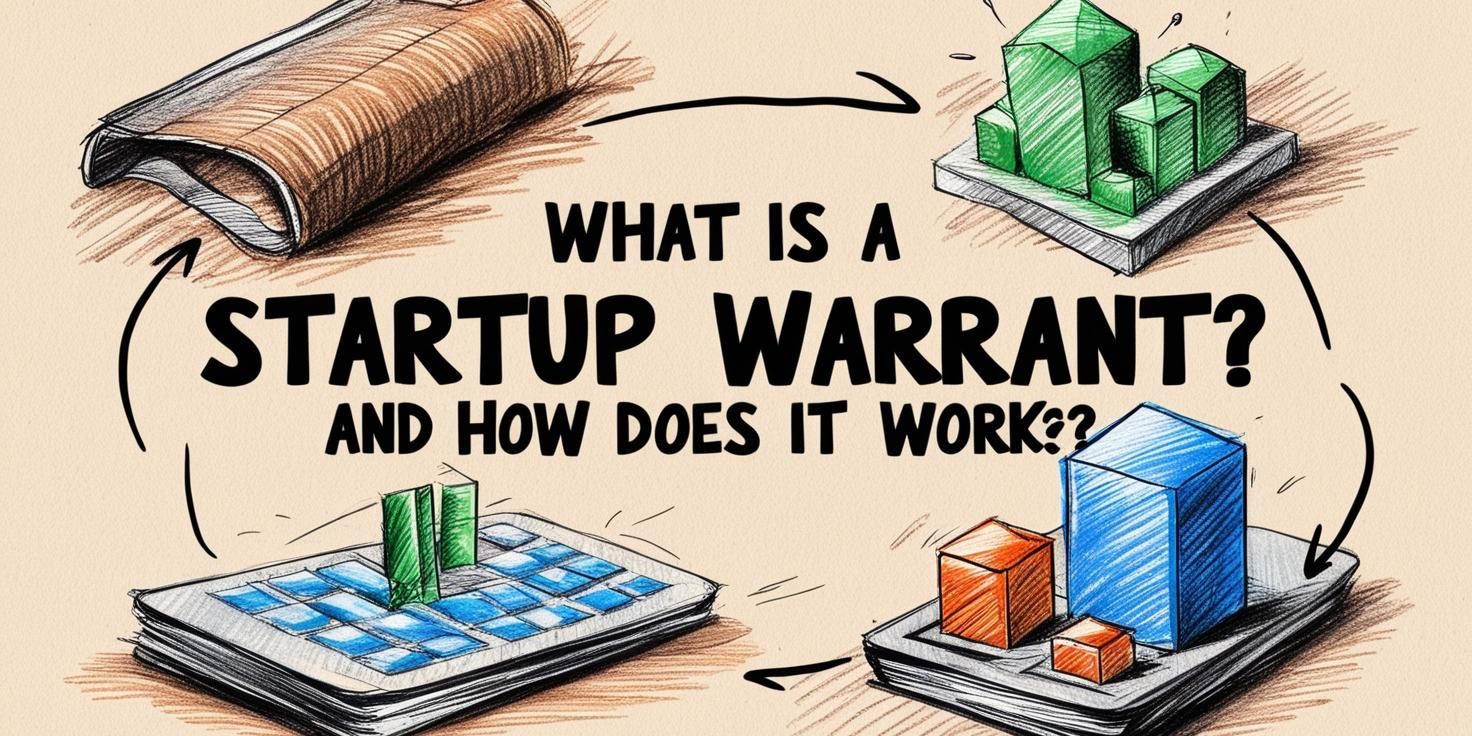What Is a Startup Warrant and How Does It Work?
Master

What Is a Startup Warrant and How Does It Work?
When you’re first diving into the world of startup financing, you’ll encounter a variety of instruments—like convertible notes, SAFEs, and something called a “warrant.” While warrants may not grab as many headlines as their more popular counterparts, they’re a powerful and flexible tool for both founders and investors. In this blog post, we’ll break down what a warrant is, why startups issue them, and walk through a simple example to illustrate how they work in practice.
What Is a Warrant?
At its core, a warrant is a financial instrument that gives the holder the right, but not the obligation, to purchase shares of a company’s stock at a predetermined price (called the “exercise price”) within a specified period. Think of it like a long-term option: if at any point before the warrant expires the company’s stock price is higher than the exercise price, the holder can “exercise” the warrant and buy shares at that lower, agreed-upon price—instantly gaining equity with built-in upside.
Why Do Startups Issue Warrants?
Startups often use warrants as a sweetener in fundraising deals. For instance, if an investor is providing much-needed capital but wants a bit more incentive to get on board, a founder might throw in a warrant. This gives the investor a chance at extra upside if the company takes off. Warrants can also be issued to advisors or key service providers who add significant value—lawyers, accountants, or consultants—offering them a piece of the startup’s future growth without handing over equity immediately.
Key Features of Warrants
1. Exercise Price: This is the locked-in price at which the warrant holder can buy shares later. It’s often based on the company’s valuation at the time the warrant is issued.
2. Expiration Date: Warrants usually have a “use it or lose it” deadline. The holder must decide to exercise by a certain date or the warrant becomes worthless.
3. No Obligation: Unlike a forward contract, the holder doesn’t have to buy the shares. If the startup’s valuation never surpasses the exercise price, the holder can simply let the warrant expire.
4. Dilution: If the warrant is exercised, it leads to the creation of new shares, which can dilute existing shareholders. However, the exercise also brings cash into the company’s coffers, usually at a time when the company has grown and can benefit from additional capital.
A Detailed Example
Imagine a scenario:
• The Startup: Let’s call it “HealthTech Inc.”
• Current Situation: HealthTech Inc. is raising a seed round to fund clinical trials for its innovative medical device. The founders are in negotiations with an angel investor.
The Deal:
HealthTech Inc. agrees to issue the angel investor a warrant in addition to their equity investment. Let’s break down the terms:
• Authorized Shares: HealthTech has set aside 10 million authorized shares, a common figure for a Delaware C Corporation.
• Current Equity Round Price: Let’s say the investor is buying shares at $1.00 per share right now.
• Warrant Terms: The warrant gives the investor the right to purchase up to 100,000 additional shares at $1.00 per share anytime within the next five years.
What Does This Mean for the Investor?
If HealthTech Inc. grows as hoped and, in three years, raises a new round at $5.00 per share, the investor can choose to exercise their warrant. Instead of paying $5.00 per share at that time, they only pay $1.00 per share, instantly realizing a $4.00 per share gain, at least on paper. With 100,000 shares, that’s a significant upside—$400,000 in potential gains—simply because they held a warrant locked in at a lower price.
What Does This Mean for the Startup?
Sure, when the investor exercises the warrant, HealthTech issues 100,000 new shares, slightly diluting everyone else. But the startup also receives $100,000 in new capital ($1.00 per share times 100,000 shares) at a later stage in its growth. By that point, the company has made progress, built value, and likely proved more of its concept. The additional capital can help with further R&D, marketing, or scaling operations—and the founder’s early bet of including a warrant in the deal helps maintain good relationships with investors and build confidence.
When Are Warrants Used?
• Sweetening a Deal: A startup may add a warrant to their fundraising package to convince a hesitant investor to join or reward an early supporter for taking a risk.
• Advisors & Service Providers: Sometimes advisors or vendors accept a warrant as partial compensation, betting on the startup’s future success.
• Strategic Partnerships: Warrants can form part of strategic alliances, giving partners incentive to help the startup succeed.
What’s the Downside?
If the company never grows in value—maybe it struggles, or the market conditions change—then the warrant will never be exercised. The holder isn’t obligated to buy shares at the exercise price if it’s higher than the company’s actual value. In this case, the warrant expires worthless, and there was no direct cost to the startup besides a slight administrative overhead.
Conclusion
Warrants may not be the first thing that comes to mind when you think about startup funding, but they can be a strategic tool in the right situations. For investors, warrants offer extra upside if the company succeeds. For startups, issuing warrants can help close deals with investors, motivate partners, and raise capital at a future date—often when the company is more stable. As with any financial instrument, it’s essential for both sides to understand the terms and implications thoroughly before signing on the dotted line.